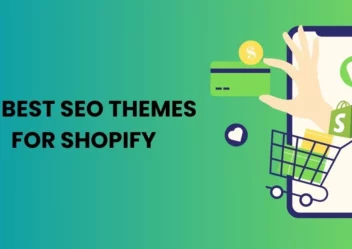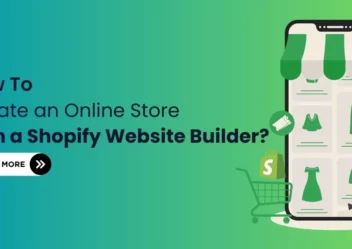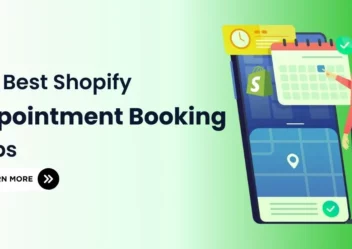What is Headless Commerce: 8+ Best Headless Platforms
Discover the future of eCommerce with a headless platform for a smoother online experience!
If you want to create a modern and flexible eCommerce website that can deliver personalized and engaging customer experiences across multiple channels, you might want to consider headless commerce.
In this blog post, we will show you what headless commerce is, how it differs from traditional eCommerce, and the advantages and disadvantages of adopting it. We will also review some of the best headless platforms that can help you build and manage your headless eCommerce website with ease.
Whether you’re a seasoned pro or a curious newbie, this blog post has something for you. So grab your favorite beverage and get ready to unlock the secrets of headless commerce!
What Is Headless Commerce?
Headless commerce is a new, flexible approach to eCommerce that’s gaining traction among businesses of all sizes. In traditional eCommerce, the front-end (what you see and interact with) and back-end (the engine that powers the store) are tightly coupled. This makes it difficult to make changes to one without affecting the other.
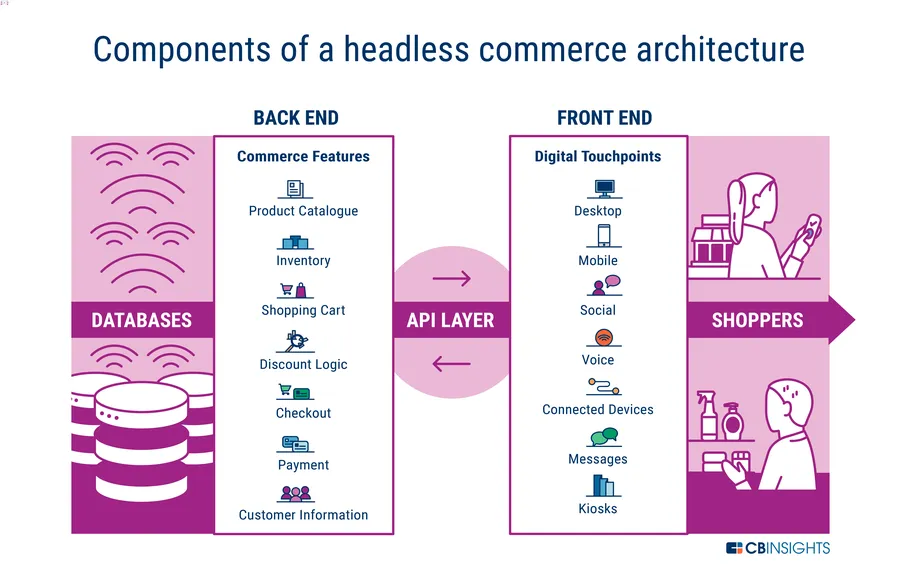
Here’s what makes it different from traditional eCommerce:
Traditional:
- Tightly coupled front-end and back-end.
- Changes to one require changes to the other, slowing down innovation.
- Limited flexibility for creating unique experiences.
Headless:
- Decoupled front-end and back-end through an API.
- Independent updates and experimentation possible.
- Highly flexible for creating diverse customer experiences across any platform (web, mobile app, voice assistant, etc.).
Advantages and Disadvantages of Adopting Headless Commerce
Headless commerce offers a powerful, customizable e-commerce experience, but it’s not without its drawbacks.
Pros:
- Flexibility: Mix and match best-of-breed technologies for a unique and engaging customer experience.
- Omnichannel: Reach customers wherever they are with seamless integration across platforms.
- Faster Time-to-Market: Make changes and launch features quickly without impacting the entire system.
- Improved Performance: Handle high traffic and complex catalogs efficiently for a smooth experience.
Cons:
- Complexity and Cost: Requires more technical expertise and resources, leading to higher development and ongoing costs.
- Security Risks: Open architecture can be more vulnerable to security threats, requiring robust measures.
- Lack of Out-of-the-Box Features: Basic functionalities like shopping carts often need custom development.
- Vendor Lock-in: Dependence on specific APIs or services can make switching providers difficult.
- Technical Team Needs: Requires a team with expertise in APIs, front-end, and back-end technologies.
Best Headless Platforms for Commerce
1. Shopify Plus – Headless Architecture eCommerce
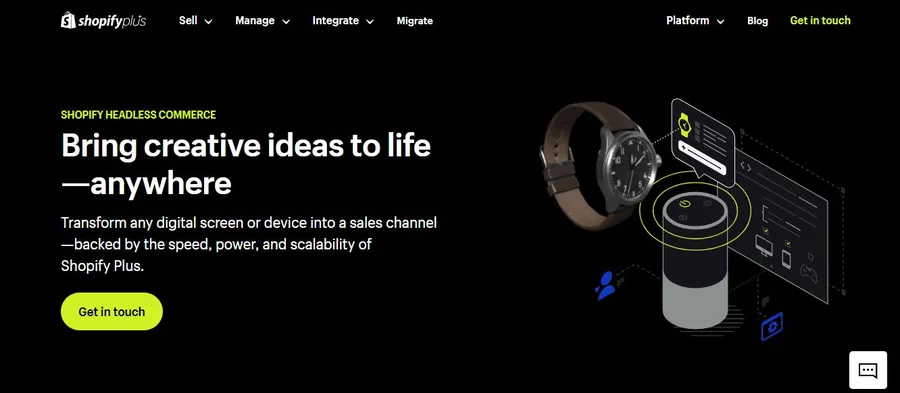
Shopify Plus is the enterprise-grade version of the popular Shopify platform, boasting a headless architecture eCommerce alongside its traditional storefront. It’s known for its user-friendly interface, extensive app ecosystem, and robust built-in features like B2B functionalities, subscriptions, and omnichannel support.
- Features: Omnichannel commerce, headless APIs, built-in marketplace, and social commerce tools.
- Pros: Easy to use, scalable, large app ecosystem.
- Cons: Can be expensive; limited customization options.
- Ideal for: Businesses seeking a user-friendly, feature-rich platform with a strong app ecosystem and omnichannel support.
2. BigCommerce – Headless Platform
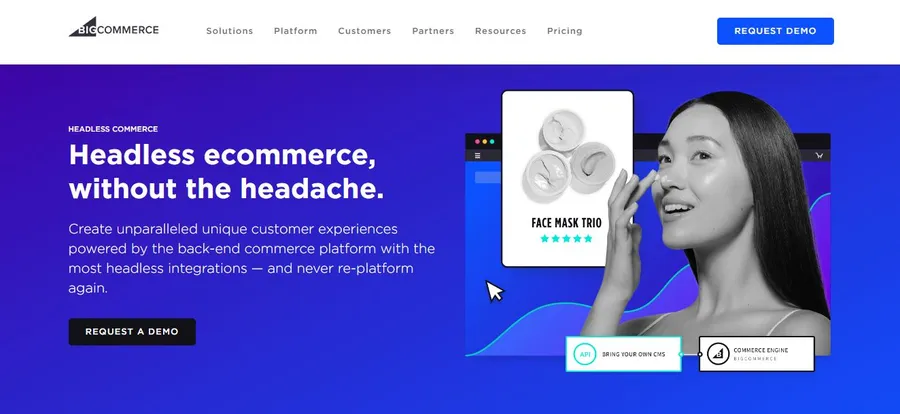
BigCommerce is another popular platform offering both traditional and headless commerce solutions. It’s famous because of its scalability, robust API, and powerful built-in features like SEO tools, content management, and abandoned cart recovery.
- Features: Headless APIs, built-in B2B functionality, strong SEO tools, and PWA support.
- Pros: Affordable, good for B2B businesses, easy to use.
- Cons: Not as customizable as some other platforms; limited marketing features.
- Ideal for: Businesses looking for a scalable, API-first platform with strong marketing tools and good value for money.
3. Salesforce Commerce Cloud
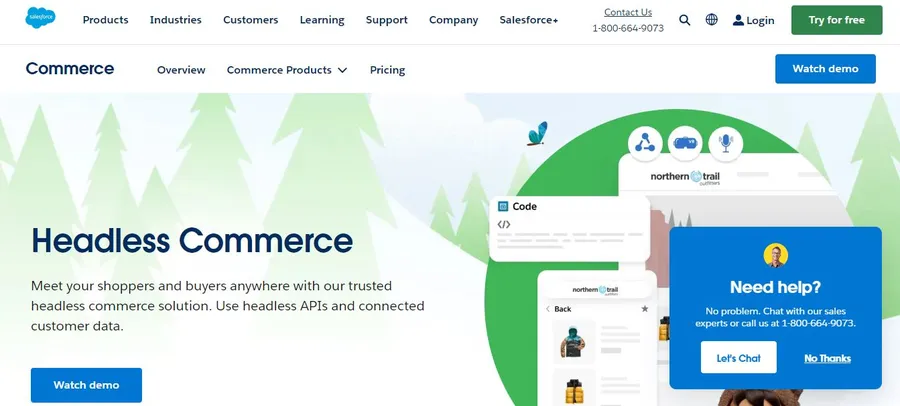
Formerly known as Demandware, Salesforce Commerce Cloud is a powerhouse platform built for large enterprises. It offers a highly customizable headless eCommerce architecture, advanced personalization capabilities, and seamless integration with other Salesforce products.
- Features: Highly scalable, AI-powered personalization, omnichannel marketing tools, and B2B functionality.
- Pros: Powerful features, great for large businesses, strong integration with Salesforce CRM.
- Cons: Expensive, complex to set up, not as user-friendly as some other platforms.
- Ideal for: Large businesses with complex needs requiring extensive customization, B2B functionalities, and integration with other Salesforce products.
4. Adobe Commerce (Magento)
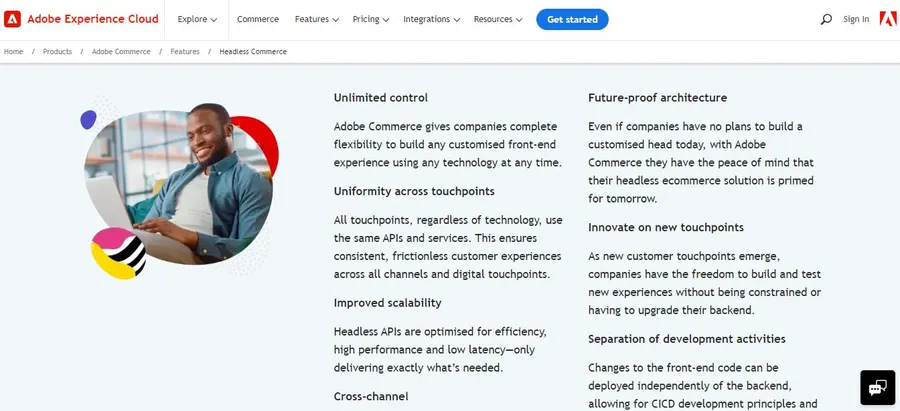
Adobe Commerce, formerly known as Magento, is a highly customizable and open-source headless commerce platform. It’s renowned for its flexibility, developer-friendly nature, and vast community of extensions and developers.
- Features: Highly customizable, open-source platform, large developer community, extensive plugin ecosystem.
- Pros: Powerful and flexible; can be customized to meet any need, large community for support.
- Cons: Expensive, complex to set up and manage, requires development expertise.
- Ideal for: Developers and technically savvy businesses seeking highly customizable, open-source solutions with strong B2B functionalities.
5. Commercetools
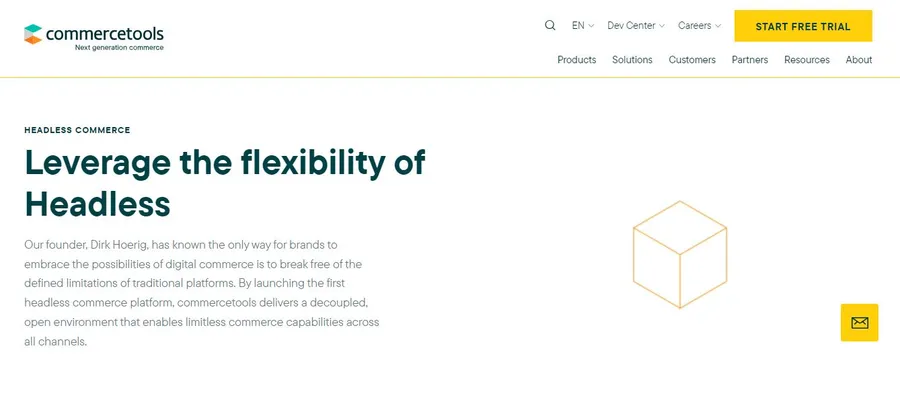
Commercetools is a MACH-based headless eCommerce platform known for its modular architecture, API-first approach, and cloud-native deployment. It’s ideal for businesses seeking a microservices-based architecture and flexible integration options.
- Features: API-first architecture, microservices architecture, built-in scalability, global selling capabilities.
- Pros: Highly flexible, future-proof architecture, great for international businesses.
- Cons: Can be complex to set up, requires development expertise, and is not as user-friendly as some other platforms.
- Ideal for: Businesses seeking a modern, API-first platform with a MACH architecture, flexible integrations, and cloud scalability.
6. Elastic Path
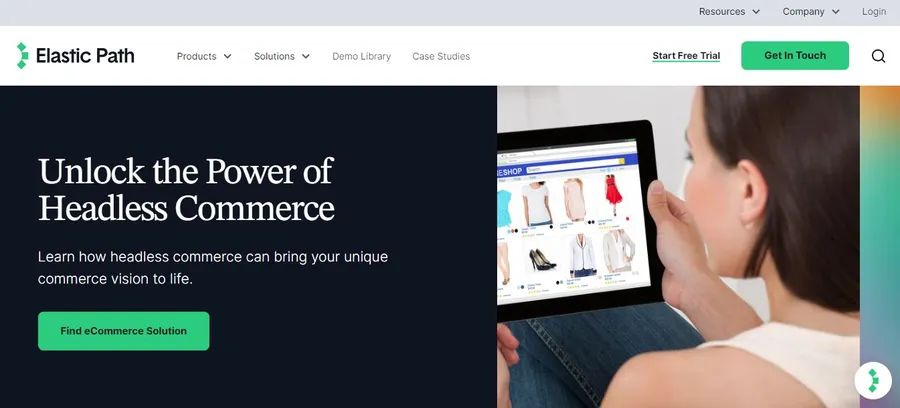
Elastic Path is a composable headless commerce platform known for its open-commerce approach and B2B-specific features. It allows businesses to mix and match different commerce components and boasts strong B2B functionalities like quoting complex pricing, and self-service portals.
- Features: API-first architecture, headless CMS, built-in B2B functionality, strong order management.
- Pros: Flexible and scalable, good for B2B businesses, headless CMS makes it easy to create custom storefronts.
- Cons: Not as well-known as some other platforms; limited app ecosystem.
- Ideal for: B2B businesses seeking a composable, open-commerce platform with strong B2B features and flexible pricing.
7. Kibo Commerce
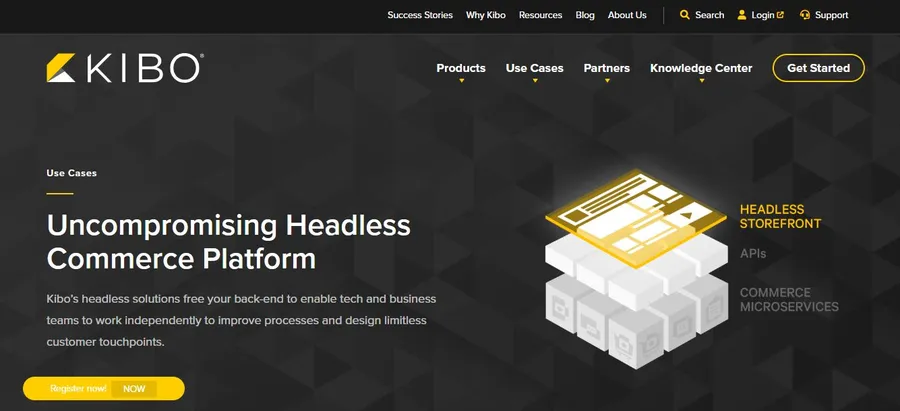
Kibo Commerce is a cloud-based headless platform known for its personalization capabilities, AI-powered features, and omnichannel commerce support. It’s ideal for businesses seeking to create highly personalized shopping experiences across multiple channels.
- Features: Cloud-based platform, API-first architecture, built-in personalization, omnichannel marketing tools.
- Pros: Scalable and reliable; strong personalization features; good for large businesses.
- Cons: Expensive, can be complex to set up, not as user-friendly as some other platforms.
- Ideal for: Businesses seeking a highly personalized, AI-powered headless platform with strong omnichannel support and B2B functionalities.
8. Spryker
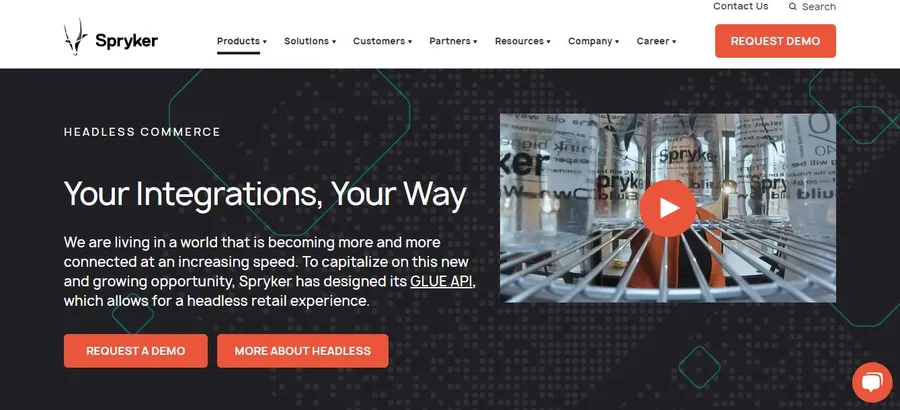
Spryker is not your average headless commerce platform. It’s a full-blown e-commerce solution designed for B2B, B2C, and marketplace businesses that crave flexibility, scalability, and speed. Think of it as a commerce engine that you can plug into any front-end you like, be it a custom web app, a mobile app, or even a voice assistant.
- Features: API-first architecture, microservices architecture, built-in marketplace functionality, headless CMS.
- Pros: Highly flexible and scalable, future-proof architecture, good for B2B businesses and marketplaces.
- Cons: Can be complex to set up, requires development expertise, and is not as user-friendly as some other platforms.
- Ideal for: B2B businesses, brands with growth ambitions, tech-savvy companies, and content-driven brands
Conclusion
Headless commerce is not a one-size-fits-all solution, but for businesses seeking the freedom to create unique and engaging shopping experiences, headless commerce offers a compelling path forward. By carefully considering their needs, technical expertise, and budget, businesses can find the headless commerce platform that empowers them to achieve their e-commerce goals.
Don’t forget to check out Lusion – a multipurpose eCommerce Shopify theme with fast and responsive designs.
Read More: Dive into the World’s Best Open Source eCommerce Platforms

